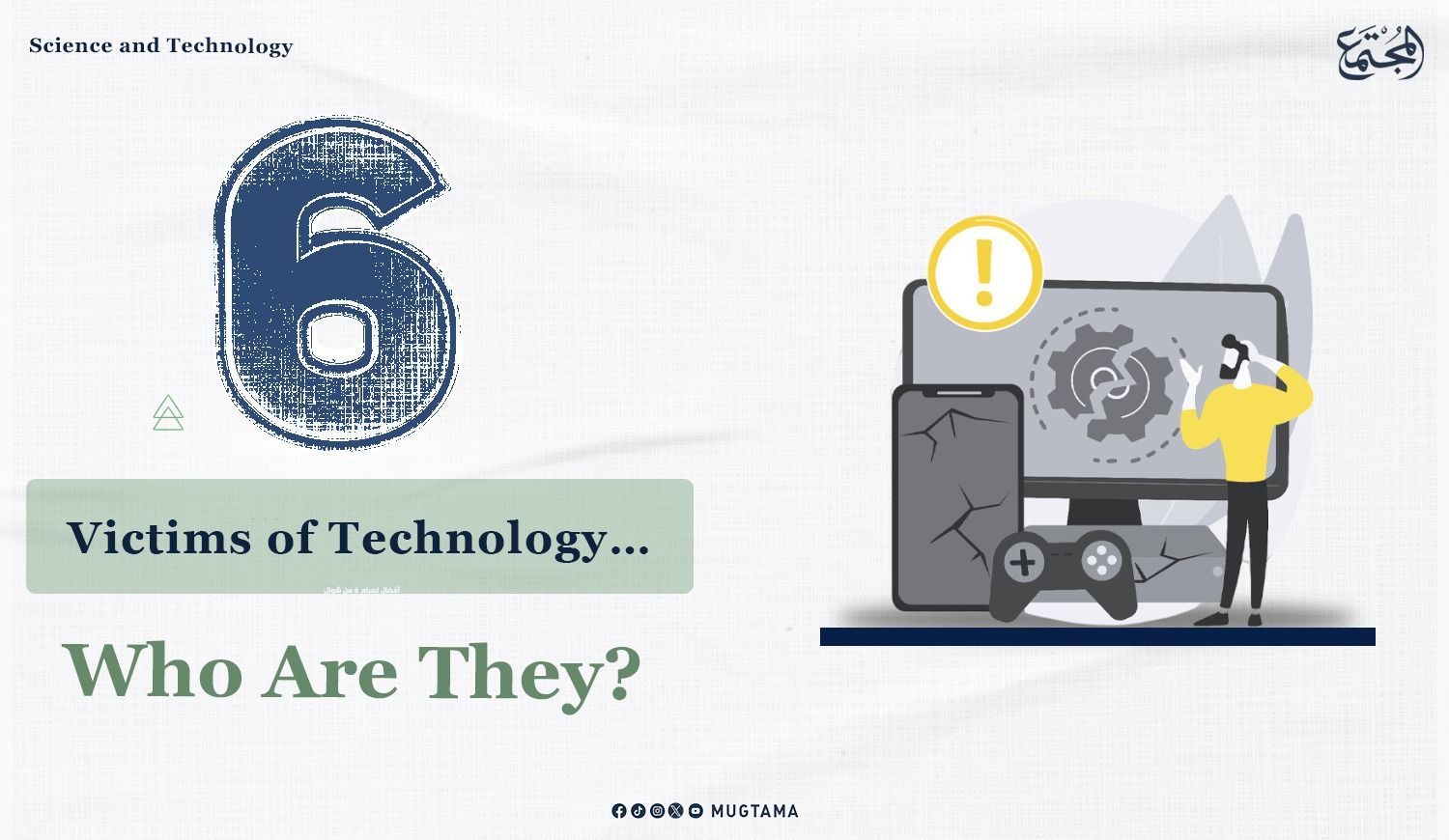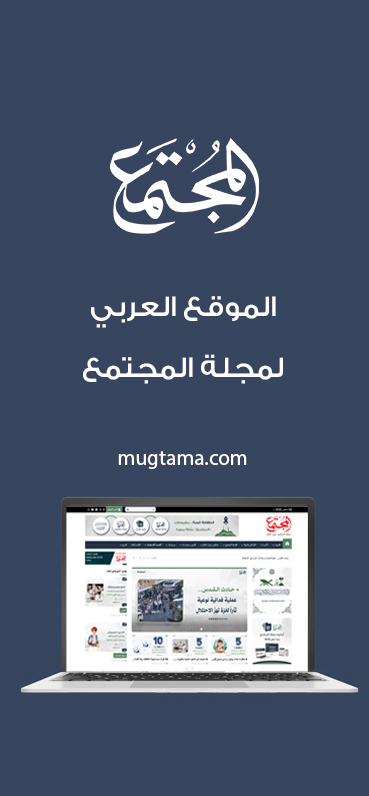6 Victims of Technology… Who Are They?

In an age where technological innovations
are rapidly accelerating, and hailed as the savior that rescued humanity from
the darkness of ignorance and backwardness, technology has become an
inseparable part of our lives, inserting itself into every small and large
detail — from mobile phones that cross borders and continents to self-driving
cars and unmanned drones.
Despite the blessings that technology has
brought, it also carries within it many curses. It is like a double-edged sword
that requires trained soldiers to wield it properly on the battlefield. Some
fighters, if they use it recklessly, are killed by it — their lives cut short.
Likewise, some people, when using technology, inevitably fall victim to it. So
who are these people? Why does technology destroy them? And how can they
protect themselves from this looming danger?
Bright Side of Technology
There is no doubt that technology has
simplified many tasks and significantly reduced effort and time. What used to
take years to accomplish can now be done with the press of a button. This isn’t
limited to one field but spans across all domains.
In education, a student in Kuwait can now
learn from a professor in California. In healthcare, diagnoses are now aided by
artificial intelligence, and even surgeries are performed using precision
robotics. In communication, someone at the northern tip of the globe can
instantly connect with another at its southern end. Financial transactions are
also now easier than ever, with instant payments made via smart apps.
Even in transportation, self-driving cars
can reach their destination without a human driver. And in engineering,
programming, and all aspects of daily life — we now have homes and companies
run entirely by artificial intelligence, managed remotely from anywhere in the
world.
Dark Side of Technology
Despite the multiple advantages and the
boundless facilitation technology offers across various fields, it has a dark
side — one that kills the intellect and scatters thought. Some people today
cannot make a simple decision without consulting “Google” or “ChatGPT.”
Even emotions — which are supposed to be
genuine — are now borrowed from these tools. We entrust them with our secrets
and allow their algorithms to know where we live, what we eat, whom we love,
where we are, and where we’re headed. Privacy has evaporated, simply because
we’ve treated these tools like trusted friends, replacing real relationships
and leading us into digital isolation, far removed from human nature. We now
live more through our phones than with real people, speak less, and think even
less than that.
Worse still, this has impacted us as
Muslims: the outlines of our future are blurred, job markets are threatened,
sources of income are disappearing, and lethargy has crept into our homes. Our
bodies are soaked in laziness, as we rely on machines for everything.
Victims of Technology
Technology has many victims — people who
made it their entire life, relying on it to the exclusion of everything else,
even their own minds. They destroyed themselves by their own hands under the
seductive cover of the word “technology.” These include:
1. Those who rely on technology for everything, to the extent that they no longer think for
themselves or can make even the simplest decisions. You can’t even consult them
on a matter without them reaching for their phone to ask it what to do or say!
2. Those who have lost their ability to focus — whose minds are imprisoned behind digital walls.
Their phones have become a permanent extension of their bodies; they eat, sit,
and sleep with them. Take the phone away, and it’s as if you've taken their
soul — and perhaps the soul would be easier to lose than the device!
3. Those who constantly compare their lives to
what they see on screens, never satisfied no
matter how much they possess. They always feel inadequate — perhaps even disabled
— chasing an illusion of a perfect life. They want everything instantly,
without effort or hardship. Technology has planted in them the idea that
anything can be attained with a single tap — not knowing that some of them may
even need help pressing that button!
4. Those who isolated themselves socially, replacing their families with phones and digital
platforms as their only companions. Their real relationships eroded due to
digital addiction. Isolation became their fate. They lost the ability to
communicate with real people — even trying to connect no longer works!
5. Those who trust technology more than
themselves, handing over their minds to machines,
believing the device is always smarter. They neglected their innate abilities:
thinking, analyzing, creativity, and reflection — even emotions. They borrowed
feelings from ChatGPT, searched for them on Google, and posted them on Facebook
and Twitter, turning themselves into machines that act without thought and
speak without awareness!
6. Children left alone in front of screens all
day, without supervision or guidance. Technology feeds
them whatever it’s programmed with. Their minds grow under the influence of
directed content that doesn’t suit their age, nor align with their identity.
Their personalities form far from values, religion, family, and community — and
later, we reap the thorns we planted ourselves.
Technology is neither absolute good nor
perpetual evil. It is a mirror reflecting how we use it — nothing more. Those
who use it wisely find it a blessing in their hands. Those who misuse it become
its victims. Therefore, it should be used as a complementary tool to develop
human skills, not as a replacement for the mind. We must teach younger
generations how to use it optimally — without excess or addiction — for it may
reshape us without us realizing. Then, we risk losing what makes us human: the
ability to think and create.
-------------------------------------------------------------
Sources:
1.
Muhammad Ali Al-Khouli, Integration of Content,
Education, and Technology











